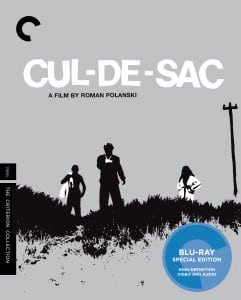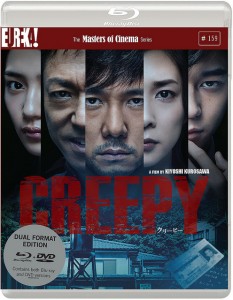 LOCARNO FILM FESTIVAL is celebrating its 70th Anniversary with a feline, canine and fantasy theme leading up to the the real mystery – who will win the coveted GOLDEN LEOPARD? There’s a surreal feel to this special edition with Isabelle Huppert struck by lightening in MADAME HYDE, a man who turns into a dog in Vanessa Paradis’ latest film CHIEN and of course the fabulous JACQUES TOURNEUR retrospective with a chance to see CAT PEOPLE (1942); THE LEOPARD MAN and I WALKED WITH A ZOMBIE (1943) in the Grand Piazza which seats 8,000 cinema-goers – Europe’s largest screening venue.
LOCARNO FILM FESTIVAL is celebrating its 70th Anniversary with a feline, canine and fantasy theme leading up to the the real mystery – who will win the coveted GOLDEN LEOPARD? There’s a surreal feel to this special edition with Isabelle Huppert struck by lightening in MADAME HYDE, a man who turns into a dog in Vanessa Paradis’ latest film CHIEN and of course the fabulous JACQUES TOURNEUR retrospective with a chance to see CAT PEOPLE (1942); THE LEOPARD MAN and I WALKED WITH A ZOMBIE (1943) in the Grand Piazza which seats 8,000 cinema-goers – Europe’s largest screening venue.
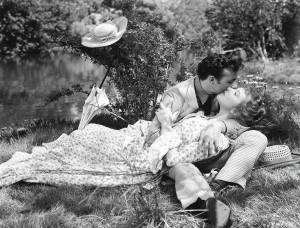 While Jacques Tourneur clearly had a feel for the surreal and a penchant for the macabre, he was not very fond of his four French features, shot between 1931 and 1934: “All those films are mixed up with each other in my mind. They resemble each other so much! It was always the same formula: musical, happy, young.” This is certainly true for Tout Ça Ne Vaut pas l’Amour; Pour Être Aimé and Toto but Les Filles de la Concierge (1934) is a brilliant character milieu study of a concierge. Madame Leclercq is the titular heroine who wants the best for her three daughters, whatever the circumstances. She even ‘rents’ one, Ginettte, to a wealthy suitor, but the ‘happy end’ justifies her method. Les Filles must have had some impact on Tourneur because, thirty years later, he expressed the desire to remake the film: “One could make a marvellous film out of it. People don’t make enough films about concierges, they’re an amazing group.” Indeed, where would be without Carlton, Your Doorman, the legendary concierge in TV hit Rhoda?.
While Jacques Tourneur clearly had a feel for the surreal and a penchant for the macabre, he was not very fond of his four French features, shot between 1931 and 1934: “All those films are mixed up with each other in my mind. They resemble each other so much! It was always the same formula: musical, happy, young.” This is certainly true for Tout Ça Ne Vaut pas l’Amour; Pour Être Aimé and Toto but Les Filles de la Concierge (1934) is a brilliant character milieu study of a concierge. Madame Leclercq is the titular heroine who wants the best for her three daughters, whatever the circumstances. She even ‘rents’ one, Ginettte, to a wealthy suitor, but the ‘happy end’ justifies her method. Les Filles must have had some impact on Tourneur because, thirty years later, he expressed the desire to remake the film: “One could make a marvellous film out of it. People don’t make enough films about concierges, they’re an amazing group.” Indeed, where would be without Carlton, Your Doorman, the legendary concierge in TV hit Rhoda?.
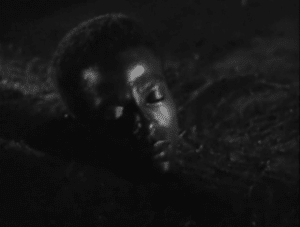 In 1934 Jacques Tourneur returned to Hollywood to work as a Second Unit director at MGM, where he also directed twenty short films. The most interesting of the shorts are Romance of Radium (1937), where the director takes us on a forty-year journey through the discovery process of what would become nuclear power, in just ten minutes! Part historical drama, impersonal chronicle and staged ‘docu-drama’, Romance is very dense; the treatment of the source as something “outside” of our world – it is clearly an early version of Experiment Perilous. What do You Think (1937) is a haunted house mystery, with the plot, structured like a Chinese mystery box, stretching out into the past, and the studios of Hollywood. It is certainly as obsessive as many of Tourneur’s features.
In 1934 Jacques Tourneur returned to Hollywood to work as a Second Unit director at MGM, where he also directed twenty short films. The most interesting of the shorts are Romance of Radium (1937), where the director takes us on a forty-year journey through the discovery process of what would become nuclear power, in just ten minutes! Part historical drama, impersonal chronicle and staged ‘docu-drama’, Romance is very dense; the treatment of the source as something “outside” of our world – it is clearly an early version of Experiment Perilous. What do You Think (1937) is a haunted house mystery, with the plot, structured like a Chinese mystery box, stretching out into the past, and the studios of Hollywood. It is certainly as obsessive as many of Tourneur’s features.
THEY ALL COME OUT (1939), Tourneur’s first feature in Hollywood, was first planned as a two-reel segment for a “Crime does not Pay” series of short films. It follows rather conventional lines (Bank heist and prison rehab), and, is visually satisfying, thanks to a very mobile camera, but its structure suffers from the late embellishment of the narrative.
Tourneur’s next projects for MGM were two Nick Carter features, MASTER DETECTIVE (1939) and PHANTOM RIDERS (1940). As Chris Fujiwara (who will present the retro) puts it: “Master Detective” is quicker and more immediately striking, but Phantom Riders has more in common visually with Tourneur’s later films. If MASTER DETECTIVE looks back to Tourneur’s past with its skilful interweaving of documentary and fiction, PHANTOM RIDERS anticipates the future with its sustaining of mood through rich décor and careful lighting; its low-budget exoticism; and its hint of thwarted sexuality”. But Tourneur really hated DOCTORS DON’T TELL (1941): “I detest this film, it is my worst”. All one can add, is that Doctors is really the most ‘un-Tourneresque’ feature of his career: it is bad, even for a routine film, its banality stupefying.
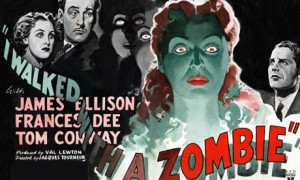 So after dabbling in the art of filmmaking in the 1930s, Jacques Tourneur’s most important features were to follow during the 1940s. In 1942, Val Lewton, who worked with Tourneur on the Second Unit for A Tale of Two Cities (1935), joined RKO as the new head for B-Horror films. His first project was CAT PEOPLE (1942) directed by Tourneur; the duo would go on to create I WALKED WITH A ZOMBIE and THE LEOPARD MAN in 1943 for RKO, before the studio made them go their separate ways with Tourneur commenting: “We were making so much money together that the studio said, we’ll make twice as much money, if we separate them”.
So after dabbling in the art of filmmaking in the 1930s, Jacques Tourneur’s most important features were to follow during the 1940s. In 1942, Val Lewton, who worked with Tourneur on the Second Unit for A Tale of Two Cities (1935), joined RKO as the new head for B-Horror films. His first project was CAT PEOPLE (1942) directed by Tourneur; the duo would go on to create I WALKED WITH A ZOMBIE and THE LEOPARD MAN in 1943 for RKO, before the studio made them go their separate ways with Tourneur commenting: “We were making so much money together that the studio said, we’ll make twice as much money, if we separate them”.
I WALKED WITH A ZOMBIE (1943) went into production just two months after CAT PEOPLE, before the surprisingly successful release of Tourneur’s first RKO feature. Trying to decribe Zombie is not an easy task because Tourneur blurred the border between reality and phantasy in his narrative. Betsy Connell (France s Dee), a Canadian nurse, takes care of Jessica (Christine Gordon) on the West Indian island of St. Sebastian. Jessica is married to the sugar planter Paul Holland (Tom Conway). She falls in love with Paul’s half-brother Wesley (James Ellison). After a scene with her husband, she falls into a trauma, and after several attempts of ‘curing’ her, Mrs. Rand (Edith Barnett), Paul and Wesley’s mother confesses that she has cast a voodoo spell on Jessica for bringing the family into disrepute. Wesley finally kills Jessica, to set her free. Tourneur preferred Zombie to Cat People, and often cited it as his favourite film. Zombie is Tourneur’s purest film when it comes to cinematic poetry, combining sounds and images into a “power of suggestion”, enhanced by the film’s narrative, which is full of enigma and contradiction, eluding any attempt to interpret it in a linear way. Zombie “is a sustained exercise in uncompromising ambiguity. Perfecting the formula that Lewton and Tourneur had developed in Cat People, the film carries its predecessor’s elliptical, oblique narrative procedures to astonishing extremes. The dialogue is almost nothing but a commentary on past events, obsessively revisiting itself, finally giving up the struggle and surrendering to a mute acceptance of the inexplicable. We watch the slow, atmospheric, lovingly detailed scenes with delight and fascination, realising at the end, that we have seen nothing but the traces of a conflict decided in advance.” (Chris Fujiwara).
s Dee), a Canadian nurse, takes care of Jessica (Christine Gordon) on the West Indian island of St. Sebastian. Jessica is married to the sugar planter Paul Holland (Tom Conway). She falls in love with Paul’s half-brother Wesley (James Ellison). After a scene with her husband, she falls into a trauma, and after several attempts of ‘curing’ her, Mrs. Rand (Edith Barnett), Paul and Wesley’s mother confesses that she has cast a voodoo spell on Jessica for bringing the family into disrepute. Wesley finally kills Jessica, to set her free. Tourneur preferred Zombie to Cat People, and often cited it as his favourite film. Zombie is Tourneur’s purest film when it comes to cinematic poetry, combining sounds and images into a “power of suggestion”, enhanced by the film’s narrative, which is full of enigma and contradiction, eluding any attempt to interpret it in a linear way. Zombie “is a sustained exercise in uncompromising ambiguity. Perfecting the formula that Lewton and Tourneur had developed in Cat People, the film carries its predecessor’s elliptical, oblique narrative procedures to astonishing extremes. The dialogue is almost nothing but a commentary on past events, obsessively revisiting itself, finally giving up the struggle and surrendering to a mute acceptance of the inexplicable. We watch the slow, atmospheric, lovingly detailed scenes with delight and fascination, realising at the end, that we have seen nothing but the traces of a conflict decided in advance.” (Chris Fujiwara).
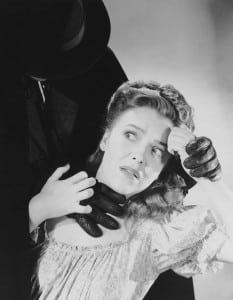 THE LEOPARD MAN (1943) is seen, perhaps wrongly, as the weakest of the Lewton/Tourneur collaborations. Based on the novel by Cornel Woolrich (Rear Window), The Leopard Man is set in the nightclub milieu of New Mexico, where club owner Dennis O’Keefe (Jerry Manning) finds a leopard for his girl friend Kiki (Jean Brooks) to perform on the stage of his club. Kiki’s jealous competitor, Clo-clo (Margo), sets the leopard free and becomes one of his – presumed – three victims. Nevertheless, O’Keefe and Kiki suspect, that the leopard is only used by the real murderer to cover his tracks. The title is misleading, The Leopard Man is not about a man who becomes a leopard, but a man who just pretends to be one. Furthermore, the narrative reveals that the three murders are not committed by one person – against the un-written law of the genre. And on top of it all, the killer’s identity is revealed at the very beginning. But in spite of this, The Leopard Man appears to be ahead of its time: the stalking of women and their violent death is not only associated with Hitchcock and his epigone Brian de Palma, but also with the Italian cult directors Mario Bava and Dario Argento. And to go a step further, “it also anticipates Michael Powell’s Peeping Tom, in making the sight of a victim’s fear the factor that fascinates the killer and compels him to kill”. Tourneur “attributed the commercial success of his films with Lewton to war psychosis. In war time people want to be frightened.” Leopard Man has the clearest connection to war of the trio, Edmund Bansak comments that “the film is a courageous essay in the random nature of death. War time audience may not have liked The Leopard Man’s downbeat message – that the young and innocent also die, but it was an important one for them to grasp”. Fujiwara calls The Leopard Man ”a pivotal work in the careers of both Tourneur and Lewton. Pushing to extremes the experiment with narrative ambiguity undertaken in Cat People and Zombie, this radical unusual film has its own precise, inexhaustible poetry.”
THE LEOPARD MAN (1943) is seen, perhaps wrongly, as the weakest of the Lewton/Tourneur collaborations. Based on the novel by Cornel Woolrich (Rear Window), The Leopard Man is set in the nightclub milieu of New Mexico, where club owner Dennis O’Keefe (Jerry Manning) finds a leopard for his girl friend Kiki (Jean Brooks) to perform on the stage of his club. Kiki’s jealous competitor, Clo-clo (Margo), sets the leopard free and becomes one of his – presumed – three victims. Nevertheless, O’Keefe and Kiki suspect, that the leopard is only used by the real murderer to cover his tracks. The title is misleading, The Leopard Man is not about a man who becomes a leopard, but a man who just pretends to be one. Furthermore, the narrative reveals that the three murders are not committed by one person – against the un-written law of the genre. And on top of it all, the killer’s identity is revealed at the very beginning. But in spite of this, The Leopard Man appears to be ahead of its time: the stalking of women and their violent death is not only associated with Hitchcock and his epigone Brian de Palma, but also with the Italian cult directors Mario Bava and Dario Argento. And to go a step further, “it also anticipates Michael Powell’s Peeping Tom, in making the sight of a victim’s fear the factor that fascinates the killer and compels him to kill”. Tourneur “attributed the commercial success of his films with Lewton to war psychosis. In war time people want to be frightened.” Leopard Man has the clearest connection to war of the trio, Edmund Bansak comments that “the film is a courageous essay in the random nature of death. War time audience may not have liked The Leopard Man’s downbeat message – that the young and innocent also die, but it was an important one for them to grasp”. Fujiwara calls The Leopard Man ”a pivotal work in the careers of both Tourneur and Lewton. Pushing to extremes the experiment with narrative ambiguity undertaken in Cat People and Zombie, this radical unusual film has its own precise, inexhaustible poetry.”
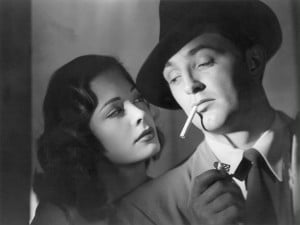 FROM OUT OF THE PAST (1947) reunites Tourneur with producer Warren Duff, (Experiment Perilous) and DoP Nicholas Musuraka (Cat People). Based on the novel Build My Gallows High by Daniel Mainwaring, Tourneur claimed, “that he participated very closely in the writing of the script. I made big changes, with the agreement of the
FROM OUT OF THE PAST (1947) reunites Tourneur with producer Warren Duff, (Experiment Perilous) and DoP Nicholas Musuraka (Cat People). Based on the novel Build My Gallows High by Daniel Mainwaring, Tourneur claimed, “that he participated very closely in the writing of the script. I made big changes, with the agreement of the
writer, of course”. The complex and elliptic narrative is centred around Jeff Bailey (Robert Mitchum), who runs a gas station in a small town in California. In flashbacks we learn that Jeff was a New York based detective, who was asked by the professional gambler Whit Sterling (Kirk Douglas) to find his mistress Kathie (Jane Greer), who had embezzled a huge sum from him. Bailey finds Kathie in Mexico, and falls in love with her. The couple hides, but Bailey’s partner Jack Fisher (Steve Brodie) finds the couple, but is shot by Kathie, who disappears afterwards. Bailey, now owner of the gas station, is visited by a member of Sterling’s gang: Sterling has a new job for him, retrieving incriminating taxation forms from his accountant in San Francisco. Kathie is living again with Sterling, and Bailey finds soon out that he is used as the sacrificial lamb. After the murder of the accountant, Kathie shoots Sterling and escapes with Bailey – not knowing that he has phoned the police to tell them their escape route. Of the major features of Noir visual style, as identified by J.A. Place and L.S. Peterson in “Some Visual motifs of Film Noir”, Out of the Past exhibits several: low-key lighting; compositions that alternate light and dark areas; the use of objects as framing devices within the frame. All these elements are however, consistent features of Tourneur’s work outside the Noir genre. They are present to some degrees in Tourneur’s shorts and in all ten American features that Tourneur directed before Out of the Past, including the Technicolor Western Canyon Passage. Fujiwara talks about “the endlessly renewable source of cinematic fascination of Out of the Past”, even though Tourneur himself only belatedly – after the release of the film in France, when he had returned in the late 1960s to his country of birth – acknowledged it as one of his major works, calling it “along with I walked with A Zombie and Night of the Demon, his poetic manifesto.”
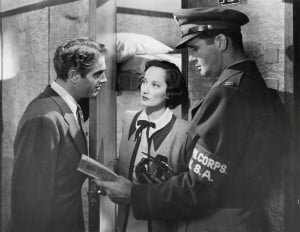 BERLIN EXPRESS (1948) was – regarding the topic – a one-off in Tourneur’s work, since the film is set mainly in contemporary post-war Berlin, the divided capital of Germany. Shooting in post-war Germany was like an adventure, the footage had to be sent back to Hollywood for processing. Billy Wilder had to wait for Berlin Express to finish, before starting shooting A Foreign Affair, because film equipment was a scarce commodity. The plot is, as often with Tourneur, secondary: Dr. Heinrich Bernhardt (Paul Lucas) a famous resistance fighter, is travelling from Paris to Frankfurt under an alias. During the journey, an agent, posing as Bernhardt, is killed by an explosion. In Frankfurt, Bernhardt is kidnapped by members of a Neo-Nazi movement. Four members on the train, each representing the four powers who rule Berlin, try to locate Bernhardt, after his secretary Lucienne Mirbeau (Merle Oberon) explains the situation to them. But, as it turns out the Frenchman Perrot is actually Holtzman, the leader of the Nazi underground. He is killed after another unsuccessful attempt on Bernhardt’s life. Lucien Ballard, the DoP was married to Merle Oberon, but his stylish photography does not favour his wife more than the Hollywood star. Berlin Express is actually three films in one: the first is a melodrama, where the Nazis try to kill Bernhardt. The second part is a documentary on Germany’s destruction. The third part is a typical Tourneur study of doubt, terror and impossibility.
BERLIN EXPRESS (1948) was – regarding the topic – a one-off in Tourneur’s work, since the film is set mainly in contemporary post-war Berlin, the divided capital of Germany. Shooting in post-war Germany was like an adventure, the footage had to be sent back to Hollywood for processing. Billy Wilder had to wait for Berlin Express to finish, before starting shooting A Foreign Affair, because film equipment was a scarce commodity. The plot is, as often with Tourneur, secondary: Dr. Heinrich Bernhardt (Paul Lucas) a famous resistance fighter, is travelling from Paris to Frankfurt under an alias. During the journey, an agent, posing as Bernhardt, is killed by an explosion. In Frankfurt, Bernhardt is kidnapped by members of a Neo-Nazi movement. Four members on the train, each representing the four powers who rule Berlin, try to locate Bernhardt, after his secretary Lucienne Mirbeau (Merle Oberon) explains the situation to them. But, as it turns out the Frenchman Perrot is actually Holtzman, the leader of the Nazi underground. He is killed after another unsuccessful attempt on Bernhardt’s life. Lucien Ballard, the DoP was married to Merle Oberon, but his stylish photography does not favour his wife more than the Hollywood star. Berlin Express is actually three films in one: the first is a melodrama, where the Nazis try to kill Bernhardt. The second part is a documentary on Germany’s destruction. The third part is a typical Tourneur study of doubt, terror and impossibility.
 Since displacement is a central part of all Tourneur films, post-war Germany was an ideal setting. Michael Henry comments that Berlin Express “was a characteristic Tourneurian work, distilling the feeling of insecurity in which his creatures find themselves plunged as soon as they have been uprooted, placed out of their element, literally side-tracked”. But in spite of the political undertone and the ideological certainty of the protagonists, Tourneur finds ambivalence. This points towards his two 1950s films, Appointment in Honduras and The Fearmakers, both have ideological topics, but are treated with the same ambiguity and doubt as all of Tourneur’s work.
Since displacement is a central part of all Tourneur films, post-war Germany was an ideal setting. Michael Henry comments that Berlin Express “was a characteristic Tourneurian work, distilling the feeling of insecurity in which his creatures find themselves plunged as soon as they have been uprooted, placed out of their element, literally side-tracked”. But in spite of the political undertone and the ideological certainty of the protagonists, Tourneur finds ambivalence. This points towards his two 1950s films, Appointment in Honduras and The Fearmakers, both have ideological topics, but are treated with the same ambiguity and doubt as all of Tourneur’s work.
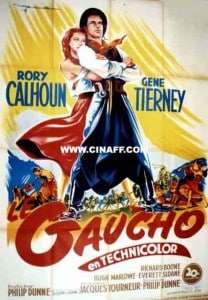 Producer/writer Philip Dunne was assigned to write the script and produce WAY OF A GAUCHO for 20th Century Fox, so that the company could recoup some of the money the Peron government had frozen in Argentina. In March 1951 Dunne informed Fox boss Darryl F. Zanuck that the proposed director, Henry King would not be available, due to his wife’s illness. Dunne goes on: “The man I want to suggest for director is Jacques Tourneur. I am absolutely delighted with the job he is doing with Anne of the Indies. In my opinion, he is a much better director than many who have made big reputations for themselves and draw down huge salaries. He is quick, sure and economical and he is getting flawless performances from his cast.”
Producer/writer Philip Dunne was assigned to write the script and produce WAY OF A GAUCHO for 20th Century Fox, so that the company could recoup some of the money the Peron government had frozen in Argentina. In March 1951 Dunne informed Fox boss Darryl F. Zanuck that the proposed director, Henry King would not be available, due to his wife’s illness. Dunne goes on: “The man I want to suggest for director is Jacques Tourneur. I am absolutely delighted with the job he is doing with Anne of the Indies. In my opinion, he is a much better director than many who have made big reputations for themselves and draw down huge salaries. He is quick, sure and economical and he is getting flawless performances from his cast.”
Zanuck agreed, and in May 1951 Tourneur arrived in Argentina. Dunne reported a month later to Zanuck: “that the Argentine government’s interest tends to become a little overwhelming. They want to have a hand in every phase of our production. Government officials were very insistent on having big stars in the picture. No reasonable government would behave in this way, but we must remember that we are dealing with incredibly stupid, provincial people”. Whilst Tourneur and Dunne were touring the country for locations, they where invariably followed by spies. Shooting under these circumstances proved difficult. There are rumours that Tourneur drank too much, but in the absence of testimony from Dunne or Tourneur, this cannot be proven. But what is true, is that Dunne and Zanuck did not employ Tourneur to add some scenes to make the central character, Martin Penalosa, more heroic. The film is set at the end of 19th century in Argentina, where Martin Penalosa is jailed for killing a man in a duel. Instead of prison he chooses the army, but does not like the harsh treatment at the hands of Major Salinas (Richard Boone). He saves Teresa Chavez (Gene Tierney), a noblewoman, from the Indians. Martin again disappears under pressure from Salinas, and leads a band of gauchos in resistance against Salinas soldiers. Martin and Teresa fall in love, and the former gives himself up to Salinas, for the sake of his wife and unborn child. It’s easy to see why this straightforward Hollywood adventure would not play to Tourneur’s strength. There is no ambivalence, white is white, and black is black. WAY OF A GAUCHO is beautifully shot, if nothing else. But it marked the decline of Tourneur in Hollywood and he would never been employed by Fox again.
 THE FEARMAKERS (1958) is perhaps Tourneur’s last respectable feature before his final decline. Darwin Taylor’s novel The Fearmakers was published in 1945. Allen Eaton (Dana Andrews) returns from a Chinese POW camp after the Korean War. Eaton returns to his Washington PT office to learn that his partner Clark Baker has died under mysterious circumstances, after having sold the business to Jim McGinnis (Dick Foran). Meeting with his friend Senator Walder (Roy Gordon), Eaton is informed, that McGinnis is a suspected foreign agent (meaning he is a Communist). Eaton decides to get a job with McGinnis, and soon finds out he has forged some poll numbers for lobbyist Fred Fletcher. Eaton gains access to the poll material, and with the help of McGinnis’ secretary Lorraine (Marile Earle), proves McGinnis’ guilt. But McGinnid, with the help of his associates, attempts to kidnap and kill Eaton and Lorraine, who overpowers them and despatch McGinnis to the police. Whilst Tourneur thought, “that the film was a failure”, he certainly brings out the contradictions in the plot, featuring a McCarthy-esque Senate Committee for the defence of democracy. Eaton is a typical Tourneur hero, his vulnerability recalls the main protagonists in Nightfall and Easy Living. His recurrent headaches are the psychosomatic manifestations of his doubts. There are moments when we wonder if Eaton is fantasising part of the action. When McGinnis calls him a “brainwashed psycho”, we are again reminded of the thin ice Eaton is walking on, but the film never really challenges his worldview. Eaton is like all true Tourneur heroes – unable to leave reality, which follows him into his dreams: When the camera pans from a window across a dark room and hovers over Eaton’s bed, lit dimly with mottled shadows, we see his anguish in his haunted features. Tourneur suffused his characters with his own anxieties. AS
THE FEARMAKERS (1958) is perhaps Tourneur’s last respectable feature before his final decline. Darwin Taylor’s novel The Fearmakers was published in 1945. Allen Eaton (Dana Andrews) returns from a Chinese POW camp after the Korean War. Eaton returns to his Washington PT office to learn that his partner Clark Baker has died under mysterious circumstances, after having sold the business to Jim McGinnis (Dick Foran). Meeting with his friend Senator Walder (Roy Gordon), Eaton is informed, that McGinnis is a suspected foreign agent (meaning he is a Communist). Eaton decides to get a job with McGinnis, and soon finds out he has forged some poll numbers for lobbyist Fred Fletcher. Eaton gains access to the poll material, and with the help of McGinnis’ secretary Lorraine (Marile Earle), proves McGinnis’ guilt. But McGinnid, with the help of his associates, attempts to kidnap and kill Eaton and Lorraine, who overpowers them and despatch McGinnis to the police. Whilst Tourneur thought, “that the film was a failure”, he certainly brings out the contradictions in the plot, featuring a McCarthy-esque Senate Committee for the defence of democracy. Eaton is a typical Tourneur hero, his vulnerability recalls the main protagonists in Nightfall and Easy Living. His recurrent headaches are the psychosomatic manifestations of his doubts. There are moments when we wonder if Eaton is fantasising part of the action. When McGinnis calls him a “brainwashed psycho”, we are again reminded of the thin ice Eaton is walking on, but the film never really challenges his worldview. Eaton is like all true Tourneur heroes – unable to leave reality, which follows him into his dreams: When the camera pans from a window across a dark room and hovers over Eaton’s bed, lit dimly with mottled shadows, we see his anguish in his haunted features. Tourneur suffused his characters with his own anxieties. AS
JACQUES TOURNEUR RETRO | LOCARNO FILM FESTIVAL 2-10 AUGUST ’17

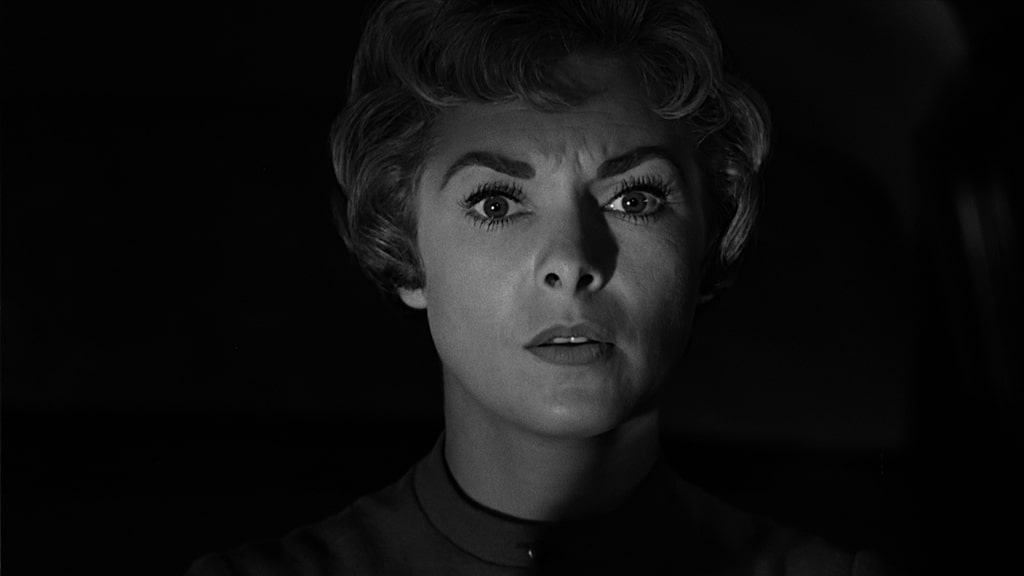
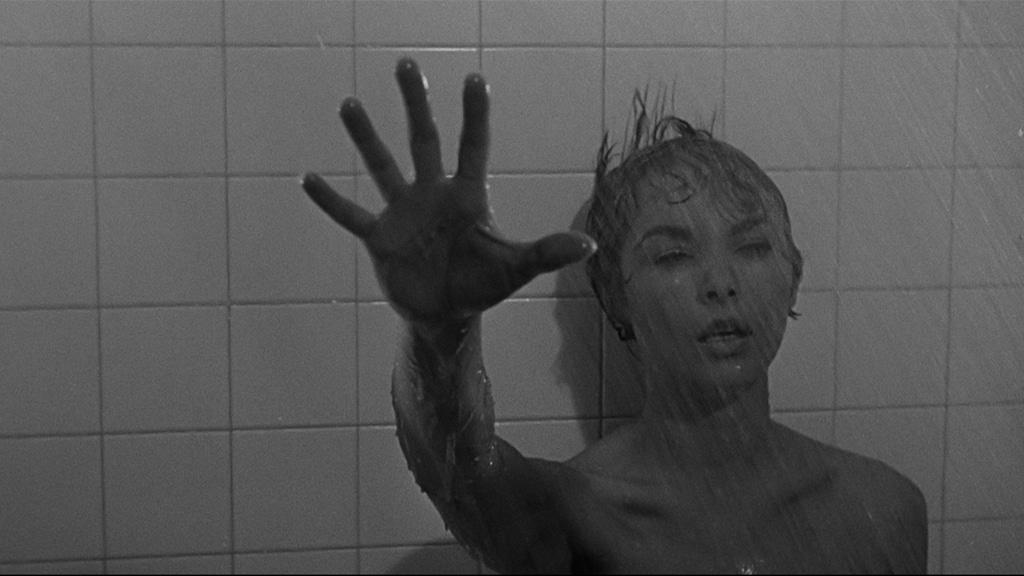
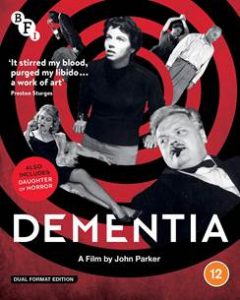
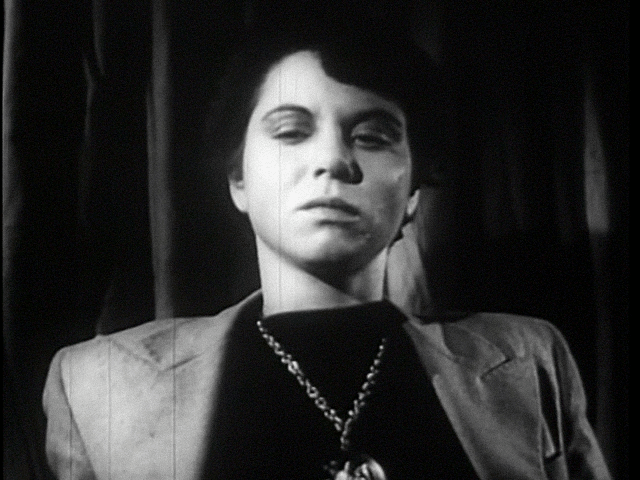
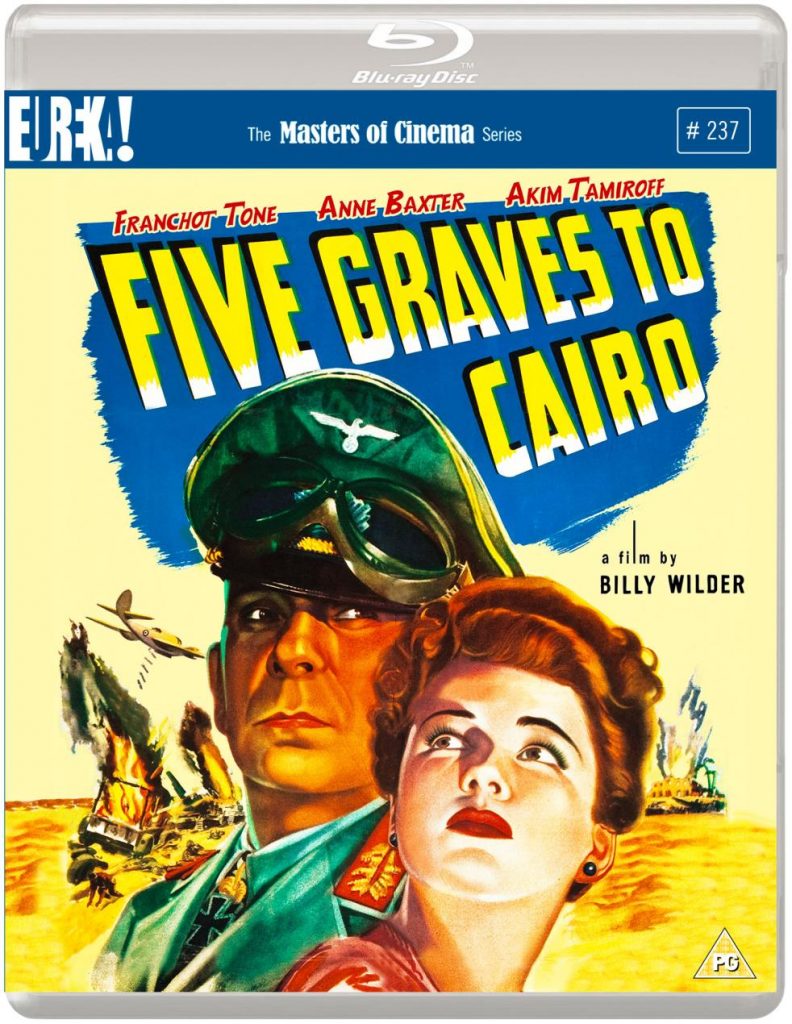
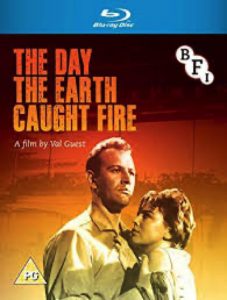 Valmond Maurice Guest (1911-2006) was an English film director and screenwriter who started his career on the British stage and in early sound films. He wrote over 70 scripts many of which he also directed, developing a versatile talent for making quality genre fare on a limited budget (Hell is a City, Casino Royale, The Boys in Blue). But Guest was best known for his Hammer horror pictures The Quatermass Xperiment and Quatermass II, and Sci-Fis The Day the Earth Caught Fire and 80,000 Suspects which nowadays provide a fascinating snapshot of London and Bath in the early Sixties. Shot luminously in black and white CinemaScope the film incorporates archive footage that feels surprisingly effective with views of Battersea Power Station and London Bridge. A brief radio clip from a soundalike PM Harold MacMillan adds to the fun.
Valmond Maurice Guest (1911-2006) was an English film director and screenwriter who started his career on the British stage and in early sound films. He wrote over 70 scripts many of which he also directed, developing a versatile talent for making quality genre fare on a limited budget (Hell is a City, Casino Royale, The Boys in Blue). But Guest was best known for his Hammer horror pictures The Quatermass Xperiment and Quatermass II, and Sci-Fis The Day the Earth Caught Fire and 80,000 Suspects which nowadays provide a fascinating snapshot of London and Bath in the early Sixties. Shot luminously in black and white CinemaScope the film incorporates archive footage that feels surprisingly effective with views of Battersea Power Station and London Bridge. A brief radio clip from a soundalike PM Harold MacMillan adds to the fun. Dirty weekends don’t come any dirtier than the one in this ferocious indie revenge thriller that has ravishing locations, a twisty storyline, and a female lead who is not just a pretty face.
Dirty weekends don’t come any dirtier than the one in this ferocious indie revenge thriller that has ravishing locations, a twisty storyline, and a female lead who is not just a pretty face.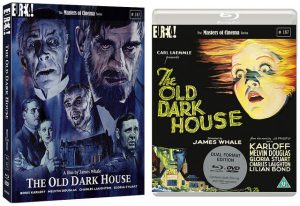 Dir: James Whale | Wri: Benn Levy/J B Priestley | Cast: Boris Karloff| Charles Laughton | Eva Moore | Gloria Stuart | Melvyn Douglas| Raymond Massey | Horror / Comedy |US 75′
Dir: James Whale | Wri: Benn Levy/J B Priestley | Cast: Boris Karloff| Charles Laughton | Eva Moore | Gloria Stuart | Melvyn Douglas| Raymond Massey | Horror / Comedy |US 75′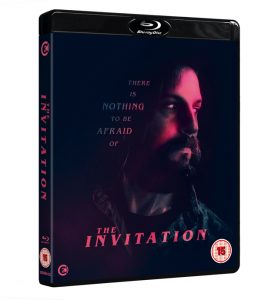 Dir: Karyn Kusama | Wri: Phil Hay | US Thriller 100′
Dir: Karyn Kusama | Wri: Phil Hay | US Thriller 100′ A towering figure of American cinema, Samuel Fuller was a master of the B-movie, a pulp maestro whose iconoclastic vision elevated the American genre film to new heights. After the major success of The Steel Helmet, Fuller was put under contract by Twentieth Century Fox after being impressed by Darryl F. Zanuck’s direct sales pitch (other studios offered Fuller money and tax shelters; Zanuck simply told him, “We make better movies.”).
A towering figure of American cinema, Samuel Fuller was a master of the B-movie, a pulp maestro whose iconoclastic vision elevated the American genre film to new heights. After the major success of The Steel Helmet, Fuller was put under contract by Twentieth Century Fox after being impressed by Darryl F. Zanuck’s direct sales pitch (other studios offered Fuller money and tax shelters; Zanuck simply told him, “We make better movies.”).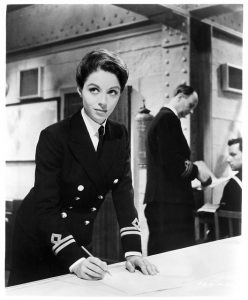 Dir: Lewis Gilbert | Cast:
Dir: Lewis Gilbert | Cast:  Diva, grande dame and femme fatale, Stanwyck adapted to any genre, be it comedy, melodrama or thriller. Her natural wit and raw emotion was particularly resonant in her Westerns, where she played resourceful, confident women holding their own in a male-dominated world. The BFI are screening 3 examples in March. Her first western Annie Oakley (George Stevens, 1935) was based on the life of ‘Little Miss Sureshot,’ one of the most famous sharpshooters in American history; Stanwyck oozes confidence in her portrayal of the determined and spirited protagonist. Cecil B. DeMille brought a characteristically epic sense of scale to the western with Union Pacific (1939), about the construction of the First Transcontinental Railroad. Mixed in with the historical elements is a love triangle between a troubleshooter, a gambler, and a train engineer’s daughter played by Stanwyck. The director was mesmerised by her performance, and she became one of his favourite stars. In Forty Guns (Samuel Fuller, 1957), a late-career highlight for Stanwyck, she portrays a wealthy landowner exerting influence over an Arizonian township by commanding a staff of 40 men. Beautifully shot and packed with psychosexual subtext and directed with bravura, Samuel Fuller’s western influenced a generation of filmmakers, including Godard.
Diva, grande dame and femme fatale, Stanwyck adapted to any genre, be it comedy, melodrama or thriller. Her natural wit and raw emotion was particularly resonant in her Westerns, where she played resourceful, confident women holding their own in a male-dominated world. The BFI are screening 3 examples in March. Her first western Annie Oakley (George Stevens, 1935) was based on the life of ‘Little Miss Sureshot,’ one of the most famous sharpshooters in American history; Stanwyck oozes confidence in her portrayal of the determined and spirited protagonist. Cecil B. DeMille brought a characteristically epic sense of scale to the western with Union Pacific (1939), about the construction of the First Transcontinental Railroad. Mixed in with the historical elements is a love triangle between a troubleshooter, a gambler, and a train engineer’s daughter played by Stanwyck. The director was mesmerised by her performance, and she became one of his favourite stars. In Forty Guns (Samuel Fuller, 1957), a late-career highlight for Stanwyck, she portrays a wealthy landowner exerting influence over an Arizonian township by commanding a staff of 40 men. Beautifully shot and packed with psychosexual subtext and directed with bravura, Samuel Fuller’s western influenced a generation of filmmakers, including Godard.
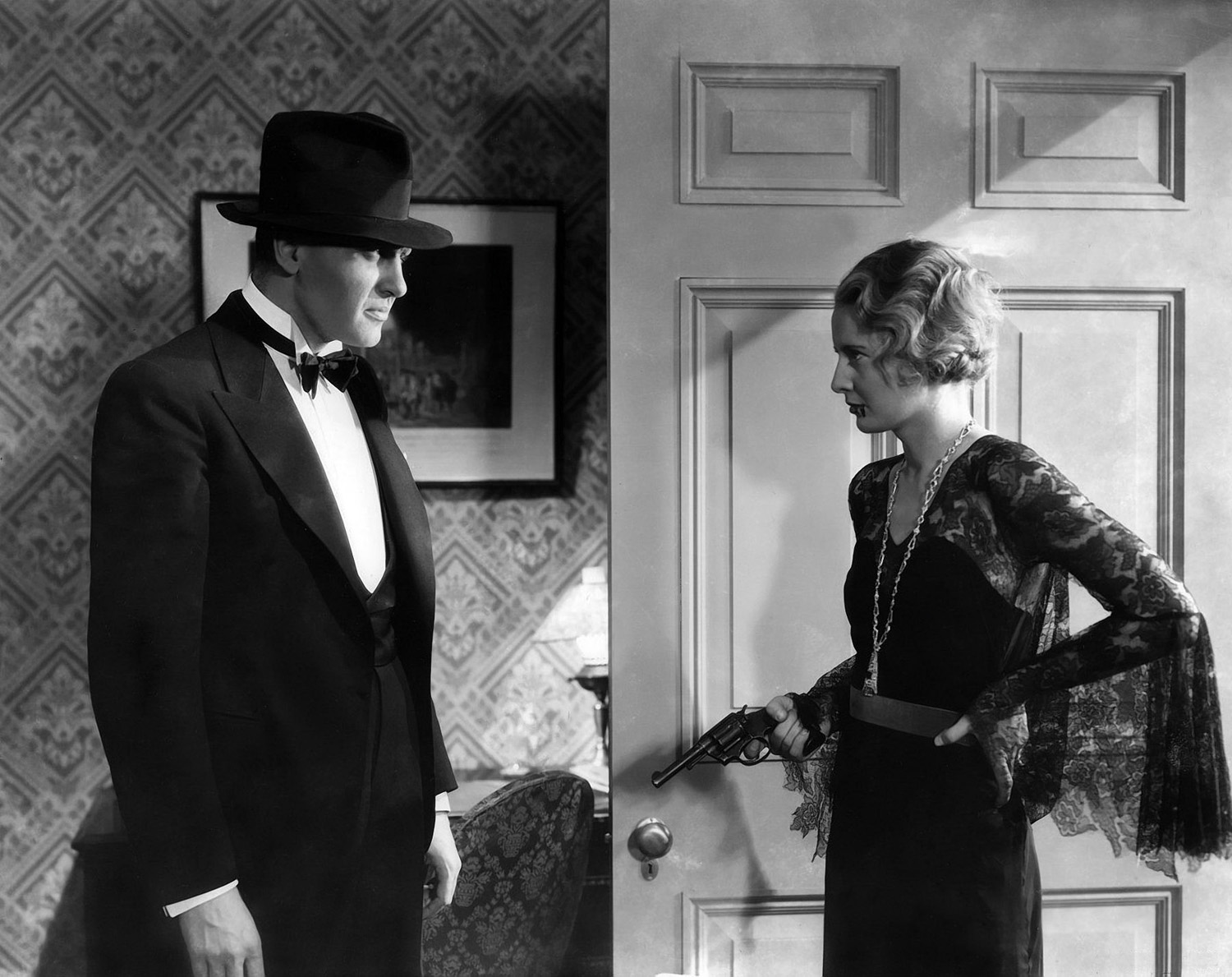
 Dir.: Edgar Pera; Cast: Dominique Pinon, Alba Baptista, Pauko Pires, Ney Matograsso, Albano Jeronimo; Brazil/Portugal 2018, 90 min.
Dir.: Edgar Pera; Cast: Dominique Pinon, Alba Baptista, Pauko Pires, Ney Matograsso, Albano Jeronimo; Brazil/Portugal 2018, 90 min. There is no filmmaker like Edgar Pêra (b.1960). His work may be an acquired taste but it is always inventive and Avant-garde referencing his heroes in creative ways and keeping the past alive. The Portuguese auteur often pays tribute to Dziga Vertov, Branquinho da Fonseca and Fernando Pessoa – but always in an ingenious way – transforming their ideas into bizarre and refreshing features, some will screen in a retrospective at the
There is no filmmaker like Edgar Pêra (b.1960). His work may be an acquired taste but it is always inventive and Avant-garde referencing his heroes in creative ways and keeping the past alive. The Portuguese auteur often pays tribute to Dziga Vertov, Branquinho da Fonseca and Fernando Pessoa – but always in an ingenious way – transforming their ideas into bizarre and refreshing features, some will screen in a retrospective at the  Edgar Henrique Clemente Pêra first studied psychology, but soon realised his vocation in Film at the Portuguese National Conservatory, currently
Edgar Henrique Clemente Pêra first studied psychology, but soon realised his vocation in Film at the Portuguese National Conservatory, currently 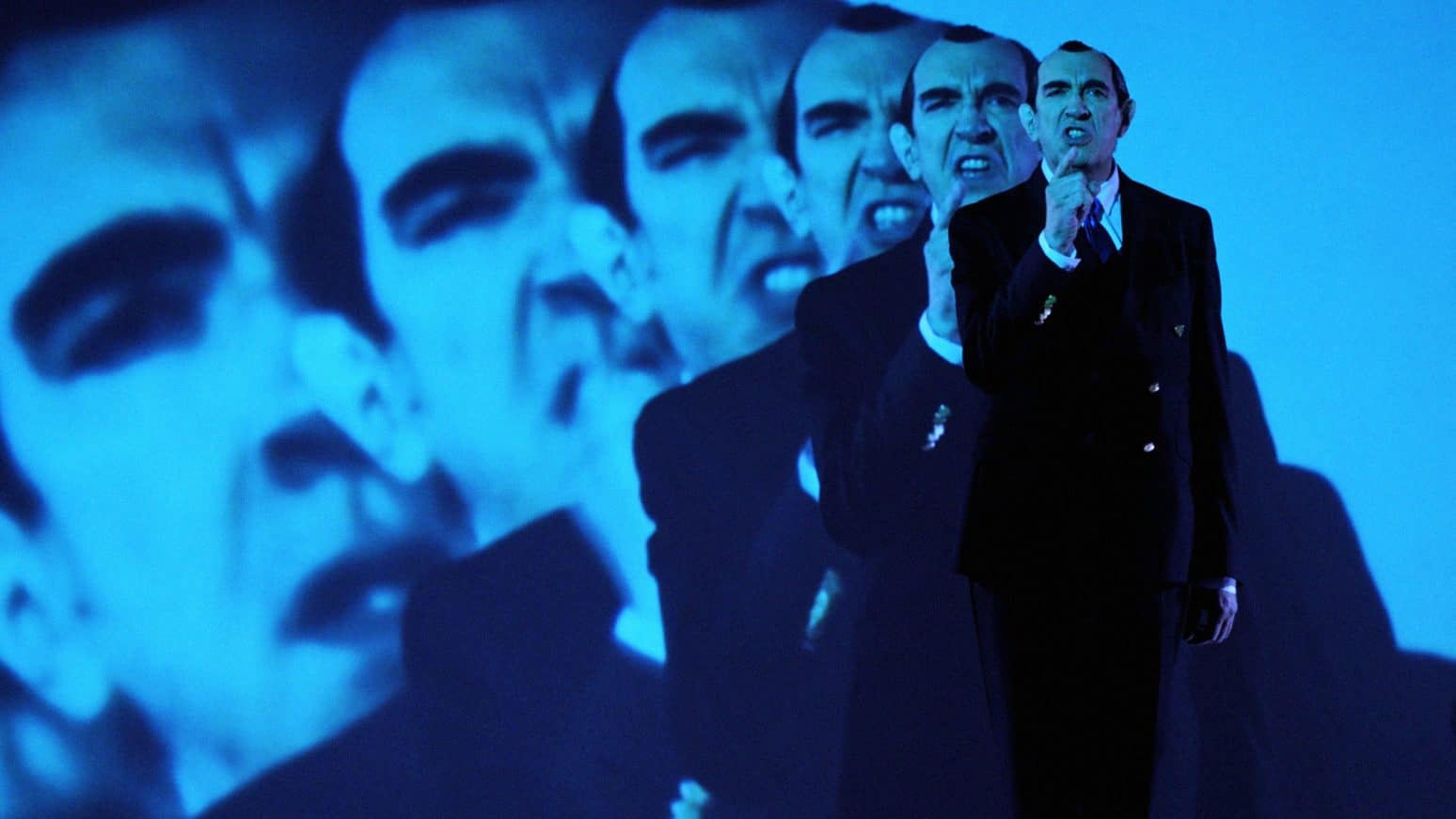
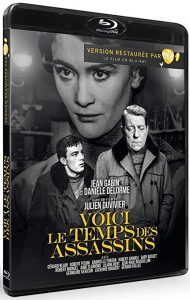 But Julien Duvivier’s 1956 thriller DEADLIER THAN THE MALE (Voici les temps des Assassins) somehow manages to outdo them all when it comes to violent women in film Noir: Catherine (Delorme) is the daughter of the drug depending Gabrielle (Bogaert), and tries to escape from the milieu by marrying the restaurant owner Andre Chatelin (Gabin), who has divorced her mother. Telling him that Gabrielle is dead, the scheming Catherine succeeds in marrying the much older man, who soon learns that his wife is lying about her mother. He more or less imprisons her with her mother Antoinette (Bert), also a restaurant owner, who kills her chicken with a whip – which she also uses on Catherine. The frightened woman asks Andre’s friend, the student Gerard (Blain), to kill her husband, but when he refuses, she kills him. Her end – by the fangs of a particular vicious animal – is particularly gruesome. Again, the images of Armand Thirad are undeserving of this blatant ideology.
But Julien Duvivier’s 1956 thriller DEADLIER THAN THE MALE (Voici les temps des Assassins) somehow manages to outdo them all when it comes to violent women in film Noir: Catherine (Delorme) is the daughter of the drug depending Gabrielle (Bogaert), and tries to escape from the milieu by marrying the restaurant owner Andre Chatelin (Gabin), who has divorced her mother. Telling him that Gabrielle is dead, the scheming Catherine succeeds in marrying the much older man, who soon learns that his wife is lying about her mother. He more or less imprisons her with her mother Antoinette (Bert), also a restaurant owner, who kills her chicken with a whip – which she also uses on Catherine. The frightened woman asks Andre’s friend, the student Gerard (Blain), to kill her husband, but when he refuses, she kills him. Her end – by the fangs of a particular vicious animal – is particularly gruesome. Again, the images of Armand Thirad are undeserving of this blatant ideology. The notorious Pépé LE MOKO (Jean Gabin, in a truly iconic performance) plunges into the gangster underworld as a wanted man: women long for him, rivals hope to destroy him, and the law is breathing down his neck at every turn. On the lam in the labyrinthine Casbah of Algiers, Pépé is safe from the clutches of the police–until a Parisian playgirl compels him to risk his life and leave its confines once and for all. One of the most influential films of the 20th century and a landmark of French poetic realism, Julien Duvivier’s Pépé le moko is presented here in its full-length version. AVAILABLE FROM CRITERION COLLECTION | Amazon Prime
The notorious Pépé LE MOKO (Jean Gabin, in a truly iconic performance) plunges into the gangster underworld as a wanted man: women long for him, rivals hope to destroy him, and the law is breathing down his neck at every turn. On the lam in the labyrinthine Casbah of Algiers, Pépé is safe from the clutches of the police–until a Parisian playgirl compels him to risk his life and leave its confines once and for all. One of the most influential films of the 20th century and a landmark of French poetic realism, Julien Duvivier’s Pépé le moko is presented here in its full-length version. AVAILABLE FROM CRITERION COLLECTION | Amazon Prime Russian Film Week is back for the third year running. From 25 November to 2 December the event will take place in London at BFI Southbank, Regent Street Cinema, Curzon Mayfair and Empire Leicester Square before heading to Edinburgh, Cambridge and Oxford.
Russian Film Week is back for the third year running. From 25 November to 2 December the event will take place in London at BFI Southbank, Regent Street Cinema, Curzon Mayfair and Empire Leicester Square before heading to Edinburgh, Cambridge and Oxford.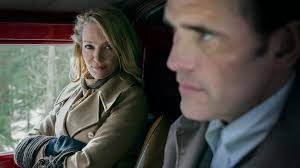 Writer/Dir: Lars von Trier | Cast: Uma Thurman, Matt Dillon, Riley Keough | Thriller | Bruno Ganz | 155′
Writer/Dir: Lars von Trier | Cast: Uma Thurman, Matt Dillon, Riley Keough | Thriller | Bruno Ganz | 155′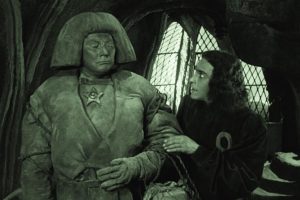 Alberto Barbera has announced a stunning line-up of highly anticipated new features and documentaries in celebration of this year’s 71st edition of Venice Film Festival which takes place on the Lido from 28 August until 8 September 2018. 30% of this year’s films are made by women which sounds more positive. Obviously the festival can only programme films offered for screening.
Alberto Barbera has announced a stunning line-up of highly anticipated new features and documentaries in celebration of this year’s 71st edition of Venice Film Festival which takes place on the Lido from 28 August until 8 September 2018. 30% of this year’s films are made by women which sounds more positive. Obviously the festival can only programme films offered for screening. The festival kicks off on the 28th with a remastered 1920 version of THE GOLEM – HOW HE CAME TO BE (ab0ve) complete with musical accompaniment. This year’s festival opening film is Damien Chazelle’s biopic of Neil Armstrong FIRST MAN. There are 21 features and documentaries in the main competition which boasts the latest films from Olivier Assayas (a publishing drama DOUBLE LIVES stars Juliette Binoche), Jacques Audiard (THE SISTERS BROTHERS), Joel and Ethan Coen’s 6-part Western THE BALLAD OF BUSTER SCRUGGS, Brady Corbet’smusical drama VOX LUX; Alfonso Cuaron with ROMA; Luca Guadagnino’s SUSPIRIA sees Tilda Swinton playing 3 parts; Mike Leigh (PETERLOO), Yorgos Lanthimos with an 18th drama entitled THE FAVOURITE; Carlos Reygadas joins from his usual Cannes slot; and Julian Schnabel will present AT ETERNITY’S GATE a drama attempting to get inside the head of Vincent Van Gogh. Not to mention Laszlo Nemes’ Budapest WW1 drama NAPSZÁLLTA, a much awaited second feature and follow up to his Oscar winning Son of Saul.
The festival kicks off on the 28th with a remastered 1920 version of THE GOLEM – HOW HE CAME TO BE (ab0ve) complete with musical accompaniment. This year’s festival opening film is Damien Chazelle’s biopic of Neil Armstrong FIRST MAN. There are 21 features and documentaries in the main competition which boasts the latest films from Olivier Assayas (a publishing drama DOUBLE LIVES stars Juliette Binoche), Jacques Audiard (THE SISTERS BROTHERS), Joel and Ethan Coen’s 6-part Western THE BALLAD OF BUSTER SCRUGGS, Brady Corbet’smusical drama VOX LUX; Alfonso Cuaron with ROMA; Luca Guadagnino’s SUSPIRIA sees Tilda Swinton playing 3 parts; Mike Leigh (PETERLOO), Yorgos Lanthimos with an 18th drama entitled THE FAVOURITE; Carlos Reygadas joins from his usual Cannes slot; and Julian Schnabel will present AT ETERNITY’S GATE a drama attempting to get inside the head of Vincent Van Gogh. Not to mention Laszlo Nemes’ Budapest WW1 drama NAPSZÁLLTA, a much awaited second feature and follow up to his Oscar winning Son of Saul. The out of competition selection is equally exciting and thematically rich. There is Bradley Cooper’s directing debut A STAR IS BORN (left), Charles Manson-themed CHARLIE SAYS from Mary Herron; Amos Gitai’s A TRAMWAY IN JERUSALEM, and Zhang Yimou’s YING (SHADOW). And those whose enjoyed S Craig Zahler’s dynamite Brawl in Cell Block 99 will be pleased to hear that his DRAGGED ACROSS CONCRETE adds Mel Gibson to the previous cast of Jennifer Carpenter and Vince Vaughn. There will be an historic epic set in the time of the French Revolution: UN PEUPLE ET SON ROI features Gaspart Ulliel and Denis Lavant (who also stars in Rick Alverson’s Golden Lion hopeful THE MOUNTAIN) , and Amir Naderi’s MAGIC LANTERN which has the wonderful English talents of Jacqueline Bisset. And talking of England, Mike Leigh’s much gloated over historical epic PETERLOO finally makes it to the competition line-up
The out of competition selection is equally exciting and thematically rich. There is Bradley Cooper’s directing debut A STAR IS BORN (left), Charles Manson-themed CHARLIE SAYS from Mary Herron; Amos Gitai’s A TRAMWAY IN JERUSALEM, and Zhang Yimou’s YING (SHADOW). And those whose enjoyed S Craig Zahler’s dynamite Brawl in Cell Block 99 will be pleased to hear that his DRAGGED ACROSS CONCRETE adds Mel Gibson to the previous cast of Jennifer Carpenter and Vince Vaughn. There will be an historic epic set in the time of the French Revolution: UN PEUPLE ET SON ROI features Gaspart Ulliel and Denis Lavant (who also stars in Rick Alverson’s Golden Lion hopeful THE MOUNTAIN) , and Amir Naderi’s MAGIC LANTERN which has the wonderful English talents of Jacqueline Bisset. And talking of England, Mike Leigh’s much gloated over historical epic PETERLOO finally makes it to the competition line-up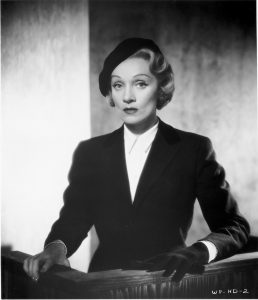 Dir: Billy Wilder | Writers: Billy Wilder, Harry Kurnitz, Lawrence B Marcus | Cast: Marlene Dietrich, Tyrone Power, Charles Laughton, Elsa Lanchester, John Williams, Torin Thatcher, Norma Varden, Una O’Connor | US Crime Drama | 116′
Dir: Billy Wilder | Writers: Billy Wilder, Harry Kurnitz, Lawrence B Marcus | Cast: Marlene Dietrich, Tyrone Power, Charles Laughton, Elsa Lanchester, John Williams, Torin Thatcher, Norma Varden, Una O’Connor | US Crime Drama | 116′ Dir: Michael Cimino | US War Thriller | 183′
Dir: Michael Cimino | US War Thriller | 183′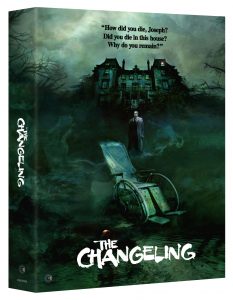 Dir: Peter Medak | Cast: George C Scott, Trish Van Devere, Joh Colicos, Melvyn Douglas | Horror | 107′
Dir: Peter Medak | Cast: George C Scott, Trish Van Devere, Joh Colicos, Melvyn Douglas | Horror | 107′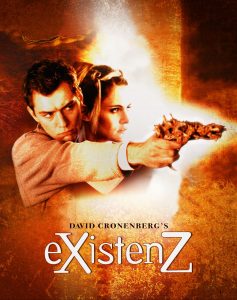 Dir: David Cronenberg | Jennifer Jason-Leigh, Jude Law, Ian Holm, Willem Dafoe
Dir: David Cronenberg | Jennifer Jason-Leigh, Jude Law, Ian Holm, Willem Dafoe 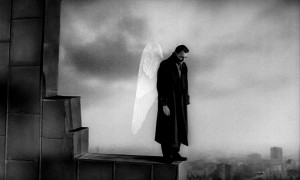 Wim Wenders’ prize-winning classic Der Himmel über Berlin (Wings of Desire, Federal Republic of Germany / France 1987) returns to the screen in a new, digitally restored 4K DCP version. Two guardian angels keep watch over Berlin, until one of them falls in love with a mortal woman. He chooses to become human, giving up his immortality, and an entirely new world is revealed to him. The film was shot on both black-and-white and colour stock. At the time, that required several additional steps in the lab in order to produce a final colour negative, which was several generations removed from the camera negatives. This version, restored by the Wim Wenders Foundation, is based on the original negatives;
Wim Wenders’ prize-winning classic Der Himmel über Berlin (Wings of Desire, Federal Republic of Germany / France 1987) returns to the screen in a new, digitally restored 4K DCP version. Two guardian angels keep watch over Berlin, until one of them falls in love with a mortal woman. He chooses to become human, giving up his immortality, and an entirely new world is revealed to him. The film was shot on both black-and-white and colour stock. At the time, that required several additional steps in the lab in order to produce a final colour negative, which was several generations removed from the camera negatives. This version, restored by the Wim Wenders Foundation, is based on the original negatives; Az én XX. századom (My 20th Century, Hungary / Federal Republic of Germany 1989), the feature debut of the winner of the 2017 Golden Bear, Ildikó Enyedi, is a complex, poetic fairy tale, and an homage to silent movies. Shot in black-and-white, the film follows the very different live of identical twins in Old Europe at the dawn of the 20th century. Using the original camera negative and the magnetic sound track, the film was digitally restored in 4K by the Hungarian National Film Fund – Hungarian National Film Archive, working with Hungarian Filmlab. Cinematographer Tibor Máthé (HSC – Hungarian Society of Cinematographers) supervised the digital grading.
Az én XX. századom (My 20th Century, Hungary / Federal Republic of Germany 1989), the feature debut of the winner of the 2017 Golden Bear, Ildikó Enyedi, is a complex, poetic fairy tale, and an homage to silent movies. Shot in black-and-white, the film follows the very different live of identical twins in Old Europe at the dawn of the 20th century. Using the original camera negative and the magnetic sound track, the film was digitally restored in 4K by the Hungarian National Film Fund – Hungarian National Film Archive, working with Hungarian Filmlab. Cinematographer Tibor Máthé (HSC – Hungarian Society of Cinematographers) supervised the digital grading. Source: Sony Pictures Entertainment, © Columbia Pictures Corporation Inc.
Source: Sony Pictures Entertainment, © Columbia Pictures Corporation Inc.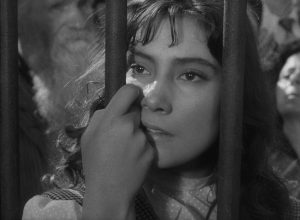 Letyat Zhuravli (The Cranes Are Flying, USSR 1957) by Mikhail Kalatozov was Soviet cinema’s first international hit after World War II. Made during the period of liberalisation that followed Joseph Stalin’s death, this unusual black-and-white film’s expressionist images tell the tragic story of two lovers after Germany’s invasion of the Soviet Union. The film brought international fame to Mikhail Kalatozov and his lead actress, Tatiana Samoilova. Letyat Zhuravli was restored by Mosfilm under the leadership of general director Karen Shakhnazarov. The ditigal 2K restoration, on the basis of the original negative, was supervised by the head of restoration Igor Bogdasarov.
Letyat Zhuravli (The Cranes Are Flying, USSR 1957) by Mikhail Kalatozov was Soviet cinema’s first international hit after World War II. Made during the period of liberalisation that followed Joseph Stalin’s death, this unusual black-and-white film’s expressionist images tell the tragic story of two lovers after Germany’s invasion of the Soviet Union. The film brought international fame to Mikhail Kalatozov and his lead actress, Tatiana Samoilova. Letyat Zhuravli was restored by Mosfilm under the leadership of general director Karen Shakhnazarov. The ditigal 2K restoration, on the basis of the original negative, was supervised by the head of restoration Igor Bogdasarov. With Tokyo Boshoku (Tokyo Twilight, Japan 1957), Berlinale Classics will provide a rare opportunity to see a largely unknown and seldom shown work by Yasujiro Ozu. The theme of the end of a family living together is one that Japanese directing maestro Yasujiro Ozu often reworks, and here he has given it a dramatic twist. In wintery Tokyo, a family’s silence leads to its breakdown. Tokyo Boshoku, considered Ozu’s most sombre post-war film, was digitally restored in 4K on the basis of the 35mm duplicate negative provided by the Japanese production company Shochiku, managed by Shochiku MediaWorX Inc. Colour correction was led by Ozu’s former assistant cameraman Takashi Kawamata and cinematographer Masashi Chikamori.
With Tokyo Boshoku (Tokyo Twilight, Japan 1957), Berlinale Classics will provide a rare opportunity to see a largely unknown and seldom shown work by Yasujiro Ozu. The theme of the end of a family living together is one that Japanese directing maestro Yasujiro Ozu often reworks, and here he has given it a dramatic twist. In wintery Tokyo, a family’s silence leads to its breakdown. Tokyo Boshoku, considered Ozu’s most sombre post-war film, was digitally restored in 4K on the basis of the 35mm duplicate negative provided by the Japanese production company Shochiku, managed by Shochiku MediaWorX Inc. Colour correction was led by Ozu’s former assistant cameraman Takashi Kawamata and cinematographer Masashi Chikamori.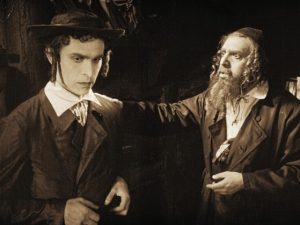 The Berlinale Classics section will open on February 16, 2018, at 5 pm in the Friedrichstadt-Palast with the premiere of the Deutsche Kinemathek’s digital restoration of the 1923 silent film classic Das alte Gesetz (The Ancient Law) directed by E.A. Dupont. ZDF/ARTE commissioned French composer Philippe Schoeller to create new music for this version, which will be presented by the Orchester Jakobsplatz München with Daniel Grossmann at the podium.
The Berlinale Classics section will open on February 16, 2018, at 5 pm in the Friedrichstadt-Palast with the premiere of the Deutsche Kinemathek’s digital restoration of the 1923 silent film classic Das alte Gesetz (The Ancient Law) directed by E.A. Dupont. ZDF/ARTE commissioned French composer Philippe Schoeller to create new music for this version, which will be presented by the Orchester Jakobsplatz München with Daniel Grossmann at the podium.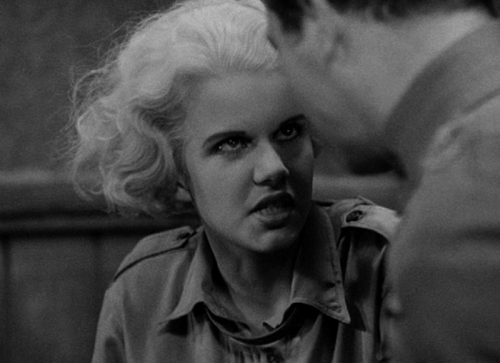
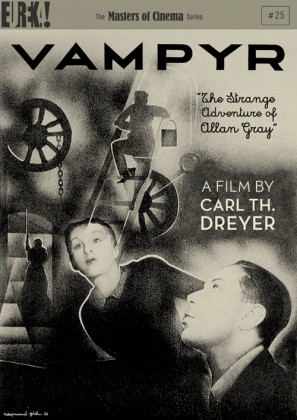 Danish director Carl-Theodor Dreyer (Ordet) is known for his austere and minimalist features.
Danish director Carl-Theodor Dreyer (Ordet) is known for his austere and minimalist features. 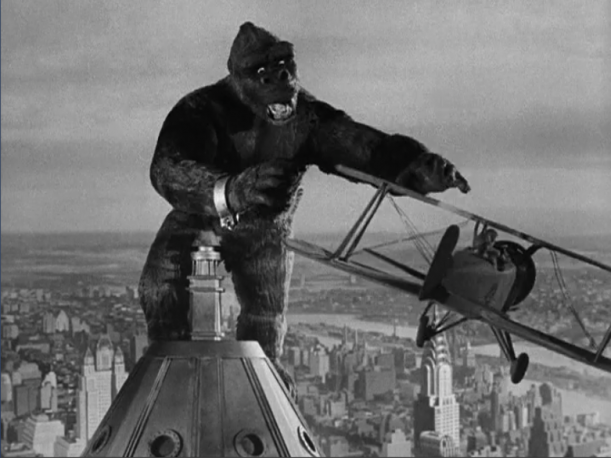
 US DRAMA –
US DRAMA – Filmmaker Maren Ade has created one of the most poignant and refreshingly humorous German arthouse comedy dramas of recent memory – it never drags despite its three-hour running time. Picturing the absurd and often awkward nature of family relationships, this is a life-affirming experience not to be missed, especially at Christmas time. After The Forest for the Trees and Everyone Else, Ade is working her way slowly but surely to the top as most of the most refreshing European writer directors around..
Filmmaker Maren Ade has created one of the most poignant and refreshingly humorous German arthouse comedy dramas of recent memory – it never drags despite its three-hour running time. Picturing the absurd and often awkward nature of family relationships, this is a life-affirming experience not to be missed, especially at Christmas time. After The Forest for the Trees and Everyone Else, Ade is working her way slowly but surely to the top as most of the most refreshing European writer directors around.. There’s something sad and awkwardly compulsive about this cautionary tale of a misguided intergenerational liaison between a lonely man and a glib young woman who meet in an island paradise. One of the best recent dramas about delusional love and its grim aftermath that perfectly epitomises the sinking realisation of being ‘over the hill’ on a holiday fling, while still holding on to the dream . Slim and but beautifully scenic and deeply resonant in its evergreen theme.
There’s something sad and awkwardly compulsive about this cautionary tale of a misguided intergenerational liaison between a lonely man and a glib young woman who meet in an island paradise. One of the best recent dramas about delusional love and its grim aftermath that perfectly epitomises the sinking realisation of being ‘over the hill’ on a holiday fling, while still holding on to the dream . Slim and but beautifully scenic and deeply resonant in its evergreen theme.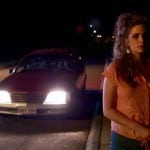 THRILLER –
THRILLER – 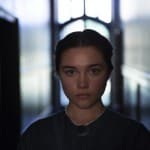 UK DEBUT –
UK DEBUT – 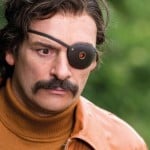 UK COMEDY –
UK COMEDY –
 Hopkins’ fraud of a film is full of middle-aged cyphers floating around in a fantasy world of the Seventies where they meet for coffee mornings and discuss worthy causes. But in the real place, this lot passed on decades ago to be replaced by the likes of Hugh Skinner’s fundraising nerd or the smiling Romanians touting The Big Issue at every street corner. Robert Festinger’s script teeters from crass to cringeworthy with no laughs to be had, and a score that jars. Hampstead is utterly specious and hollow – even Diane Keaton can’t save it.
Hopkins’ fraud of a film is full of middle-aged cyphers floating around in a fantasy world of the Seventies where they meet for coffee mornings and discuss worthy causes. But in the real place, this lot passed on decades ago to be replaced by the likes of Hugh Skinner’s fundraising nerd or the smiling Romanians touting The Big Issue at every street corner. Robert Festinger’s script teeters from crass to cringeworthy with no laughs to be had, and a score that jars. Hampstead is utterly specious and hollow – even Diane Keaton can’t save it.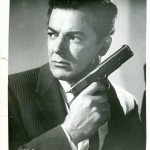 A fantastic box set that brings together dazzling high def print of some of the best films in the crime genre: THE DARK MIRROR (1946) starring Olivia de Havilland; Fritz Lang’s SECRET BEYOND THE DOOR (1947) with Joan Bennett and Michael Redgrave; FORCE OF EVIL (1948) directed by the underrated Abraham Polonsky; and Cornel Joseph H Lewis’ THE BIG COMBO (1955); with its terrific score by David Raksin with dynamite duo Cornel Wilde and Jean Wallace. The dual format edition comes with a hardback book on the films. MT
A fantastic box set that brings together dazzling high def print of some of the best films in the crime genre: THE DARK MIRROR (1946) starring Olivia de Havilland; Fritz Lang’s SECRET BEYOND THE DOOR (1947) with Joan Bennett and Michael Redgrave; FORCE OF EVIL (1948) directed by the underrated Abraham Polonsky; and Cornel Joseph H Lewis’ THE BIG COMBO (1955); with its terrific score by David Raksin with dynamite duo Cornel Wilde and Jean Wallace. The dual format edition comes with a hardback book on the films. MT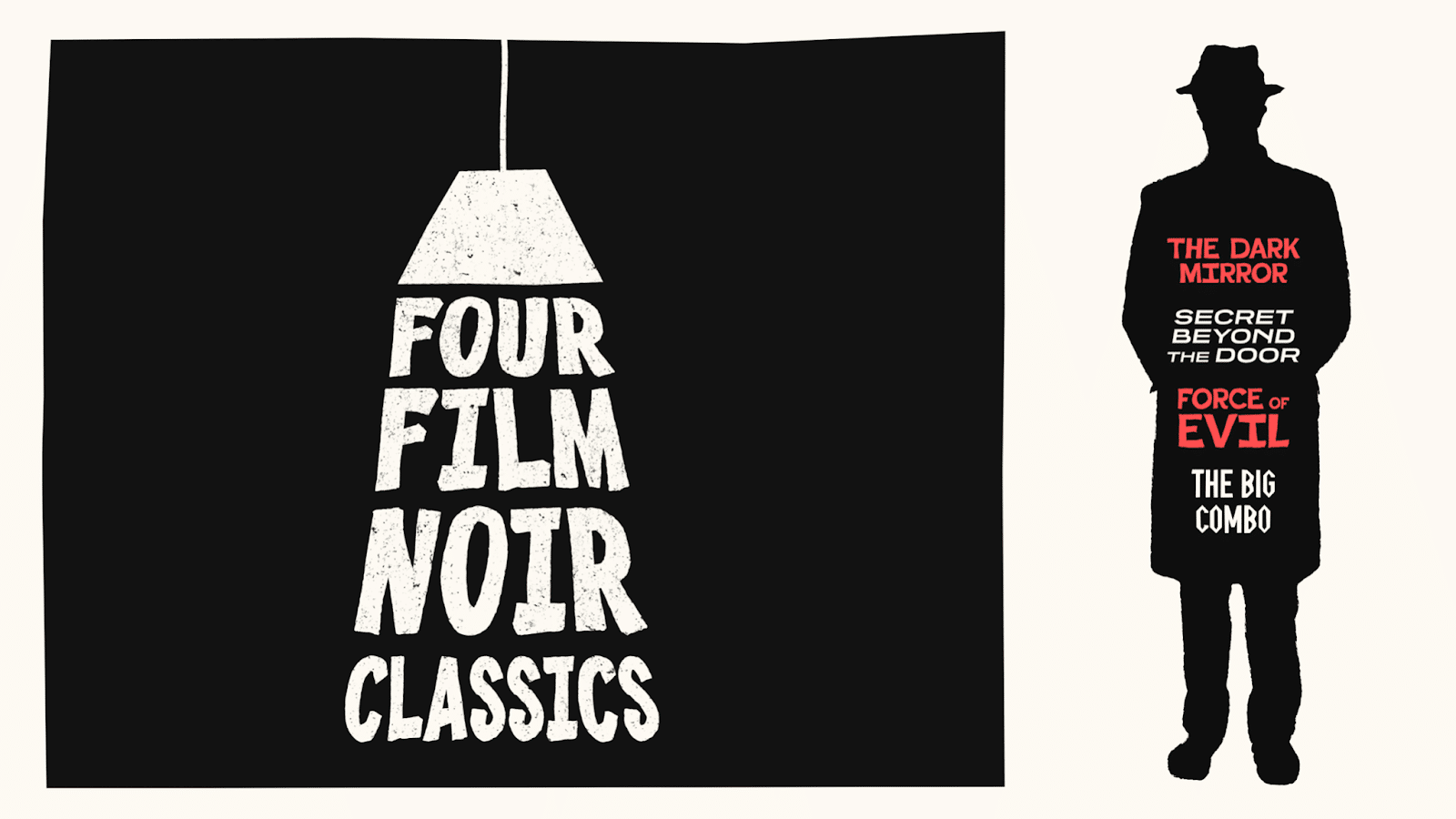


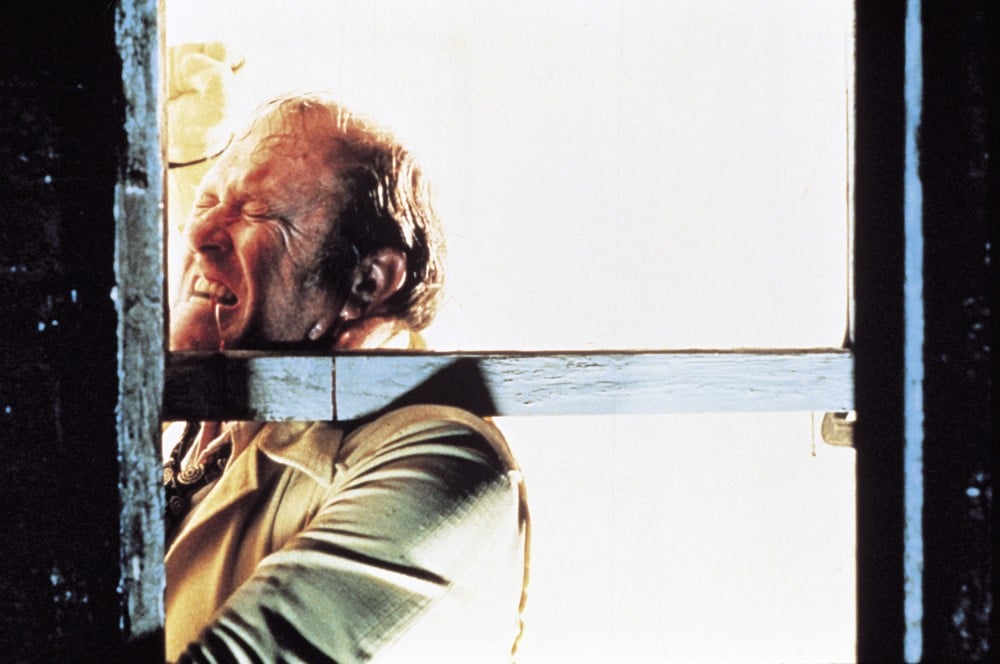
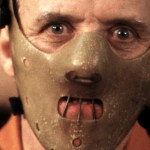





 s Dee), a Canadian nurse, takes care of Jessica (Christine Gordon) on the West Indian island of St. Sebastian. Jessica is married to the sugar planter Paul Holland (Tom Conway). She falls in love with Paul’s half-brother Wesley (James Ellison). After a scene with her husband, she falls into a trauma, and after several attempts of ‘curing’ her, Mrs. Rand (Edith Barnett), Paul and Wesley’s mother confesses that she has cast a voodoo spell on Jessica for bringing the family into disrepute. Wesley finally kills Jessica, to set her free. Tourneur preferred Zombie to Cat People, and often cited it as his favourite film. Zombie is Tourneur’s purest film when it comes to cinematic poetry, combining sounds and images into a “power of suggestion”, enhanced by the film’s narrative, which is full of enigma and contradiction, eluding any attempt to interpret it in a linear way. Zombie “is a sustained exercise in uncompromising ambiguity. Perfecting the formula that Lewton and Tourneur had developed in Cat People, the film carries its predecessor’s elliptical, oblique narrative procedures to astonishing extremes. The dialogue is almost nothing but a commentary on past events, obsessively revisiting itself, finally giving up the struggle and surrendering to a mute acceptance of the inexplicable. We watch the slow, atmospheric, lovingly detailed scenes with delight and fascination, realising at the end, that we have seen nothing but the traces of a conflict decided in advance.” (Chris Fujiwara).
s Dee), a Canadian nurse, takes care of Jessica (Christine Gordon) on the West Indian island of St. Sebastian. Jessica is married to the sugar planter Paul Holland (Tom Conway). She falls in love with Paul’s half-brother Wesley (James Ellison). After a scene with her husband, she falls into a trauma, and after several attempts of ‘curing’ her, Mrs. Rand (Edith Barnett), Paul and Wesley’s mother confesses that she has cast a voodoo spell on Jessica for bringing the family into disrepute. Wesley finally kills Jessica, to set her free. Tourneur preferred Zombie to Cat People, and often cited it as his favourite film. Zombie is Tourneur’s purest film when it comes to cinematic poetry, combining sounds and images into a “power of suggestion”, enhanced by the film’s narrative, which is full of enigma and contradiction, eluding any attempt to interpret it in a linear way. Zombie “is a sustained exercise in uncompromising ambiguity. Perfecting the formula that Lewton and Tourneur had developed in Cat People, the film carries its predecessor’s elliptical, oblique narrative procedures to astonishing extremes. The dialogue is almost nothing but a commentary on past events, obsessively revisiting itself, finally giving up the struggle and surrendering to a mute acceptance of the inexplicable. We watch the slow, atmospheric, lovingly detailed scenes with delight and fascination, realising at the end, that we have seen nothing but the traces of a conflict decided in advance.” (Chris Fujiwara).




